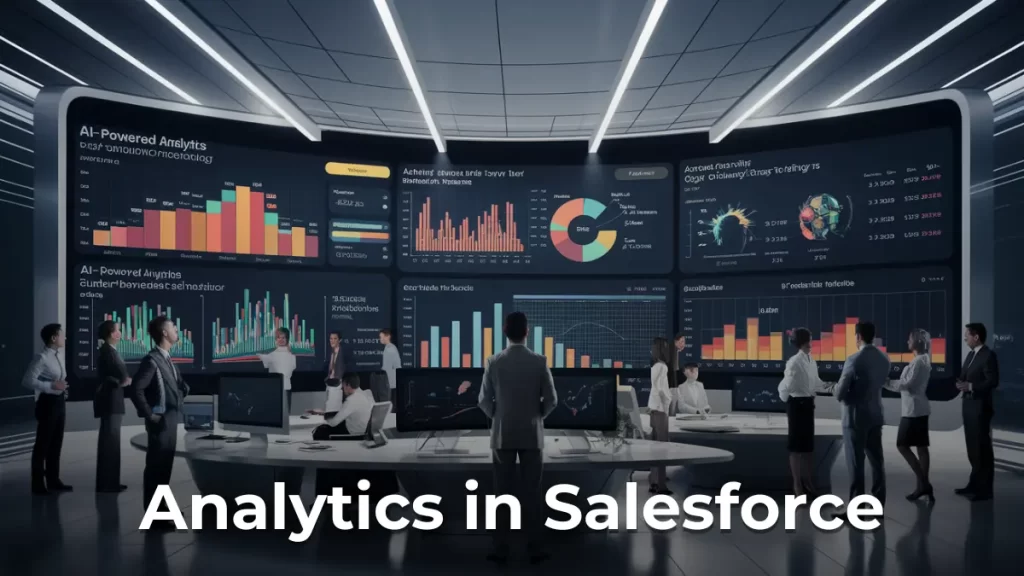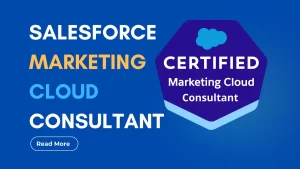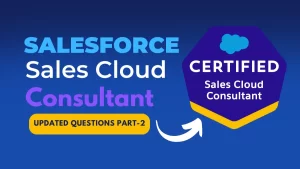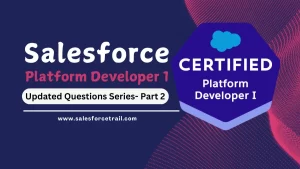In today’s fast-paced world, businesses generate massive amounts of data every second. The challenge is not just collecting data but making sense of it to drive better decisions. This is where AI-powered analytics in Salesforce steps in, transforming raw data into actionable insights. With tools like Tableau and Einstein Analytics, Salesforce empowers businesses to harness artificial intelligence (AI) and analytics to gain a competitive edge.
Let’s dive into how analytics in Salesforce helps companies turn data into insights, unlock hidden opportunities, and make smarter decisions.
What Are AI-Powered Analytics in Salesforce?
At its core, AI-powered analytics in Salesforce combines artificial intelligence with data analysis to uncover patterns, predict trends, and provide actionable recommendations. These capabilities are baked into the Salesforce platform through products like:
- Tableau: A leading analytics tool for visualizing data.
- Einstein Analytics (now Tableau CRM): AI-driven analytics tailored for Salesforce users.
- Salesforce Reports and Dashboards: Built-in tools to view and track key metrics in real-time.

Why AI-Powered Analytics Matters
- Making Sense of Big Data: Businesses often struggle to find meaningful insights from their vast data pools. Salesforce’s analytics tools simplify this by organizing and presenting data in visually engaging formats, making it easier to understand even for non-technical users.
- Predicting Trends and Outcomes: Imagine being able to forecast sales performance, customer behavior, or even market shifts. With AI analytics, Salesforce provides predictive models that help businesses anticipate changes and adapt proactively.
- Driving Customer-Centric Decisions: By analyzing customer behavior, preferences, and engagement, Salesforce helps businesses deliver personalized experiences, improve customer satisfaction, and build loyalty.
Key Features of Analytics in Salesforce
- Real-Time Data Insights: Salesforce analytics tools update data in real time, giving businesses an up-to-date picture of their operations. Whether tracking sales performance or monitoring customer interactions, real-time insights enable quicker, more informed decisions.
- Automated Predictions with Einstein: Salesforce Einstein uses AI to predict outcomes like lead conversions, churn risks, and sales opportunities. It learns from historical data and continuously refines its predictions to improve accuracy.
- User-Friendly Dashboards: Visual dashboards in Tableau and Salesforce Reports make complex data easy to interpret. Users can customize these dashboards to focus on metrics that matter most to their business.
- Integration Across Platforms: Salesforce’s analytics seamlessly integrate with other Salesforce products and third-party apps. This ensures that all your data is connected, enabling a 360-degree view of your business.
How to Get Started with Salesforce Analytics
- Define Your Goals: Before diving into analytics, identify what you want to achieve. Are you looking to improve sales performance, understand customer behavior, or optimize marketing campaigns?
- Choose the Right Tool: Salesforce offers various tools, such as Tableau, Tableau CRM, and built-in reports. Choose the one that fits your business needs and technical expertise.
- Clean and Organize Your Data: Analytics are only as good as the data they analyze. Ensure your data is accurate, clean, and well-organized. Salesforce provides tools to manage and structure your data effectively.
- Leverage Pre-Built Templates: Salesforce and Tableau offer pre-built templates for dashboards and reports, saving you time and effort. Customize these templates to align with your specific requirements.
- Train Your Team: Equip your team with the skills they need to use Salesforce analytics effectively. Salesforce Trailhead offers free training modules to help users get up to speed.
Benefits of AI-Powered Analytics in Salesforce
- Improved Decision-Making: By presenting actionable insights, Salesforce analytics eliminates guesswork, enabling data-driven decisions.
- Increased Efficiency: Automated data analysis saves time and reduces manual errors, allowing teams to focus on strategic initiatives.
- Enhanced Customer Experience: Understanding customer preferences and behavior allows businesses to create personalized experiences, boosting satisfaction and loyalty.
- Scalable Solutions: As businesses grow, Salesforce analytics scales effortlessly, handling larger data volumes and more complex analyses.
Final Thoughts
AI-powered analytics in Salesforce is transforming the way businesses operate, offering a clearer view of their data and turning it into a strategic asset. Whether you’re a small startup or a global enterprise, Salesforce provides tools to unlock insights, improve efficiency, and drive growth.
By embracing these analytics tools, you’re not just keeping up with trends—you’re staying ahead of the curve. Ready to transform your data into actionable insights? Dive into Salesforce analytics today!
Must Visit Links:
- Top 5 Reasons to Build an AI Agent for your Business
- How does Salesforce Data Cloud work? | From Data Collection to Real-Time Insights
- Want to Become a Salesforce Architect? | A Complete Guide to Success
Resources
- [Salesforce Developer] (https://developer.salesforce.com/)
- [Salesforce Success Community] (https://success.salesforce.com/)
For more insights, trends, and news related to Salesforce, stay tuned with Salesforce Trail
Mark Jacobes is a seasoned Salesforce expert, passionate about empowering businesses through innovative CRM solutions. With over 6 years of experience in the Salesforce ecosystem, Mark specializes in Salesforce development, integrations, and digital transformation strategies.
- Mark Jacobeshttps://salesforcetrail.com/author/markjacobes/September 8, 2025
- Mark Jacobeshttps://salesforcetrail.com/author/markjacobes/
- Mark Jacobeshttps://salesforcetrail.com/author/markjacobes/
- Mark Jacobeshttps://salesforcetrail.com/author/markjacobes/













